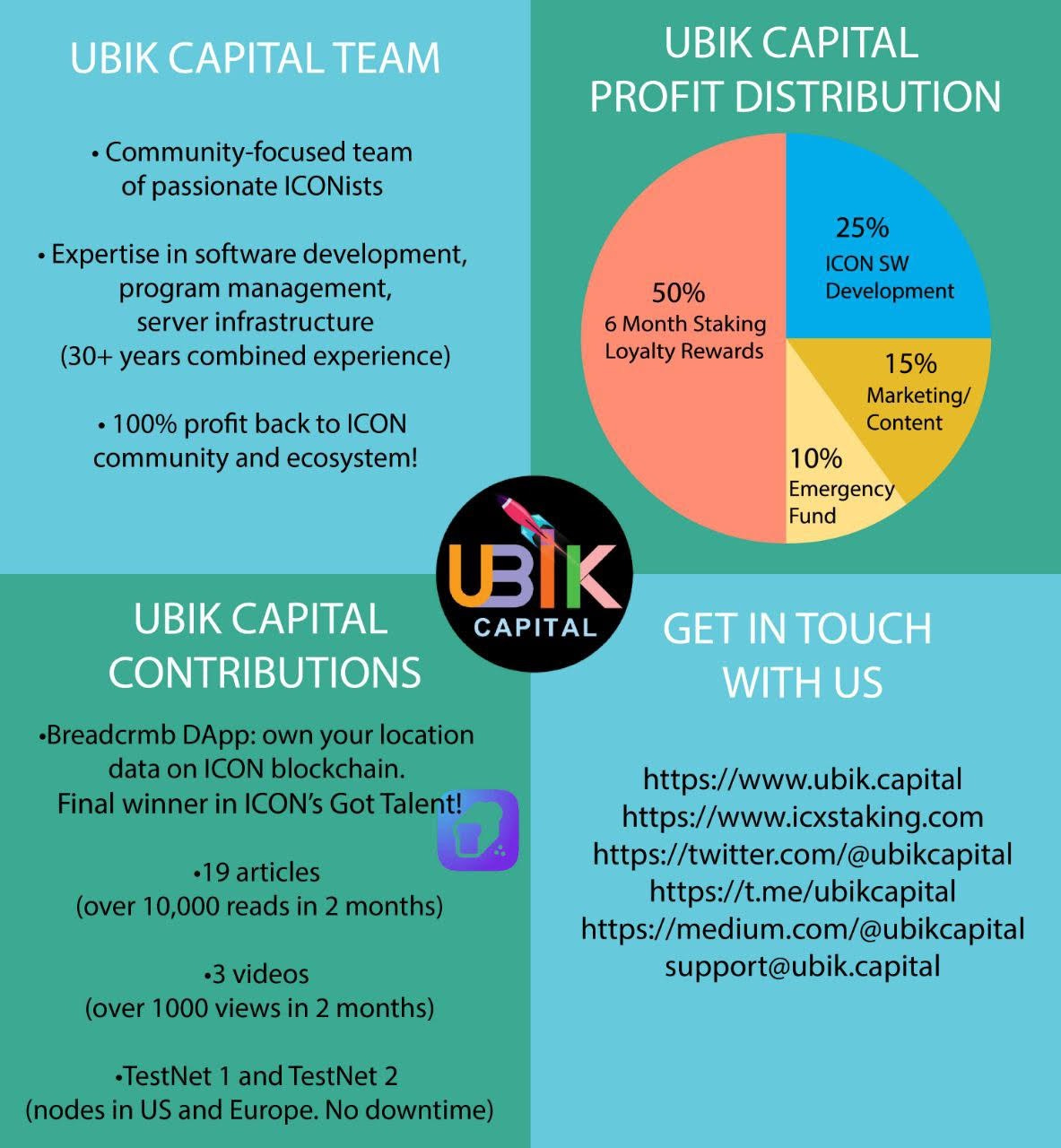The saga of "vote-buying"
Welcome to this week’s edition of the RHIZOME Wire!
Note: Before we get into this week’s newsletter, I wanted to draw attention to the fact that I am now collaborating with ICON community member FezBox on a new podcast: Eye on ICON. We'll spend time going through recent news on the latest ICON developments and analyzing new projects. The second episode is now LIVE! Listen wherever you subscribe to podcasts!
Vote-buying and the evolution of governance
Back in late 2019, right around the time ICON began it’s decentralization process, the initial campaign by P-Reps to win over voters was in full force.
Most initial teams put forth their proposals for what they were going to do to contribute to the ICON network — after all, when decentralization began, the objective of the economic system at the time was to encourage voting for P-Reps that would do the most to support and grow ICON (aka “contribute”), rather than simply run a node or participate in governance.
However, a handful tried a bit more of an outside-the-box approach and promised that they’d give rewards back to those who supported them. This certainly wasn’t that unique of an idea in crypto. Most “staking” systems operate this way: a holder delegates their stack to a node operator, thus increasing that node operators stack. The node operator receives 100% of block rewards, but gives back a portion of them in the form of rewards.
As I mentioned above, ICON wasn’t designed with this system in mind, but it shouldn’t come as a surprise that some teams wanted to borrow from this model.
One of the more notable — although not the only — team to put this idea forth was Ubik Capital, when they proposed giving back 50% of their staking rewards back to the community. Here’s a graphic showing their pitch back in 2019:
As other teams had put forth similar proposals involving some sort of reward sharing, Min Kim tweeted the following:


At the time, this pronouncement dramatically shifted the dialogue around what P-Reps were supposed to do. It also created a situation in which any sniff of “vote buying” was met with significant pushback from community members. The responses to this Tweet from Min give an example of that.
It’s understandable that under the initial model of ICON, vote-buying would be prohibited (or at least frowned upon). If teams were supposed to win votes based on the merits of their proposals (and thus their potential for substantive contribution to the ecosystem), then offering a financial incentive to receive votes would have corrupted that process.
However, since that time, the ecosystem—with formal governance ratification from P-Reps and the community—has gradually shifted how we should view P-Reps, and what the responsibility of P-Reps should be.
A short time after decentralization, Scott Smiley of ICX Station made a post on the ICON Community Forum laying out some of the issues that the initial system as designed had created:
1.) Competition instead of collaboration. Some P-Reps have collaborated, but there is a competitive nature to this rewards design that limits synergies and incentivizes combativeness, smearing, a major focus on PR/politics, etc.
2.) Votes are too concentrated - this is a research intensive decision and many people do not put in the time/effort necessary to comfortably diversify their votes among many P-Reps.
3.) Some P-Reps have reported being extorted by voters trying to push the teams to do what they want.
4.) P-Reps at the top are getting too many rewards.
5.) Self-delegation by ICX whales is highly economical and there is no unbiased/objective/decentralized way to stop this with the current design.
6.) There is a strong economic incentive to buy votes. Although we have stifled this problem for now via political tactics, I would much prefer a solution at the protocol level.
7.) Overlap between responsibilities of a P-Rep and what will be the responsibilities/scope of an EEP.
8.) This is not decentralized enough, thus we lack some key benefits of public blockchain (immutability, security, etc.) since we are essentially 22 non-anonymous entities that could easily be shut down by authorities, collude to alter transactions, freeze accounts, etc. This is especially true considering the concentration of votes.
There are obviously a handful of issues listed here. Most of decentralized blockchain governance is one big experiment, and to expect there not to be issues at any point would be unreasonable. This was, as far as I can tell, the first notable recognition that problems existed and that a solution was needed.
However, the most relevant problem (as far as vote-buying is concerned) was #6: “There is a strong economic incentive to buy votes. Although we have stifled this problem for now via political tactics, I would much prefer a solution at the protocol level.”
Here was the long-term proposal suggested by Scott:
Separate the role of [CPS] and P-Reps and make ICON more decentralized. Core responsibility of a P-Rep becomes governance and block validation, while core responsibility of [the CPS] is to contribute to the growth of the network via specific initiatives. Block rewards would be allocated as such at the protocol level, lowering the rewards for individual P-Reps and increasing the reward pool for Contribution Proposals. I would expect many of the current P-Reps to start forming teams that execute [CPS proposals] and build DApps on a regular basis. The larger economic incentive would switch from running a P-Rep/campaigning for votes to submitting Contribution Proposals and executing on such proposals. A key benefit here is that each individual [CPS proposal] has specific goals and KPIs, thus putting the larger portion of block reward funding directly towards specific projects/initiatives rather than to the control of P-Rep teams.
In other words: P-Reps were going to become node operators with governance responsibilities, and funding for contributions to the ecosystem would have to come via the Contribution Proposal System (referred to previously as “EEP” for “ecosystem expansion project”, which was another change made since the initial economic design of ICON).
Scott elaborated on the benefit of this system a bit further in the thread:
Those that would be earning the lion’s share of rewards would be teams that execute [CPS proposals] or build DApps. They would come to the network seeking votes that would approve a specific initiative. I believe this is a more efficient solution than what we currently have, where P-Rep teams are first earning rewards then deciding, in a centralized way, how they should be spent. In contrast, the rewards would go directly towards specific initiatives, rather than having P-Reps act as a middle man between rewards and initiatives.
So, rather than P-Reps receiving a bunch of rewards on the front end and saying “we promise we will figure out what we will do with this money and then work on it!” those who want additional funding will instead now have to put forth a specific, accountable proposal into the Contribution Proposal System — with a specific budget — and then receive approval for it.
The additional part of this adjustment is that P-Reps are now earning far less rewards for being P-Reps than they did at the start of decentralization. That’s because over the past several months, there have been several adjustments downward of the reward rate that P-Reps earn. Thus, there’s little economic incentive to “buy” votes, as there aren’t a whole lot of extra funds to “buy” votes with.
However, a large chunk of the community hasn’t necessarily been closely following these governance changes and this new line of thinking.
So when Sesameseed arrived late last year — along with their model of rewarding voters with SEED tokens — there was some pushback from the community. The best example of this was another thread posted on the ICON Community forum entitled SesameSeed and Vote Buying Discussion. This wasn’t of course the only place this discussion broke out — it was in Telegram and on Twitter as well.
Here is part of Scott’s response:
Looking back at our history, all the in-fighting, debating over what’s vote buying and what isn’t, social media arguing, boxing out certain teams, etc. has been a net negative for our network. It has caused people to feel uncomfortable, in some cases leave our community, not work together and often causes our community to lose focus on what’s really important (working together to grow the ICON Network and utility).
As opposed to social media pressure and off-chain mechanisms, there has been focus on systematically making vote buying less beneficial through protocol changes, such as the bond requirement and generally lowered rewards, while also reserving a large amount of block rewards specifically for contributions through the CPS. Yes, there may always be some benefit to trying to earn more votes in this way, but it will not be nearly as extreme as it once was. The CPS ensures the network will always have resources used specifically for growth initiatives regardless of vote-buying or other similar concepts.
Ultimately, after it became clear that “vote buying” wasn’t something that was going to be enforced or frowned upon, this opened up the door for other P-Reps to offer some sort of value. Here are a couple of other examples:
ICONbet is providing their voters with both COMP and TAP tokens for supporting their P-Rep community node
Metanyx will be offering their METX token to those who are willing to stake with them
These tokens are of course on top of the ICON rewards you already receive by staking and voting with your ICX.
Ultimately, there are a couple of conclusions I take away from this evolution.
First: In my opinion, under the old model, vote buying was an act that ultimately would have reduced the net contribution (and added value) to the ICON ecosystem. Rewards that were redistributed from P-Reps to community members weren’t being used to grow the ICON network in any meaningful way. Meanwhile, teams themselves had little incentive to produce contributions to ICON, since the most effective way to earn votes was to simply buy them. That’s just how the economic incentives aligned.
Under the new model, the only way it economically makes sense to give back rewards is to create new, additional value beyond the P-Rep rewards, which can then be given back to your voters.
For example, with Sesameseed, this means offering block rewards from other blockchain communities in the form of the SEED token. With ICONbet, this means sharing in some of the profits generated by the platform.
Second: Some in the community seemed dissatisfied with the fact that ICON has made so many changes to the original vision. Part of this may be that ICONists held an initial attachment to that vision and believed it was a sound model, part of it might be the fact that changing course might make the project look less stable to outside observers. Whatever the reason, these perspectives are reasonable and understandable.
However, as I alluded to before, a lot of this space is experimental. Those in crypto can do their best to try to design a system that best aligns with human behavior and incentives, but it’s hard to get it correct right out of the gate.
Getting governance wrong can be catastrophic for a blockchain. Just take a look at EOS. In that case, what seemed like a sound and well-thought-out design was eventually undermined by those willing who noticed and attacked the smallest cracks in their system.
As we move forward, it’s likely the community and P-Reps will continue tinkering with the ICON ecosystem — and that’s a good thing. Nimbleness is critical in this space, and it doesn’t just apply to governance. While ICON’s original vision of hyper connectivity is still in tact and on its way, the project has also expanded into other areas and has dedicated resources in ways it didn’t originally plan or anticipate.
So, embrace the change, and engage with governance to ensure your voice is heard!


